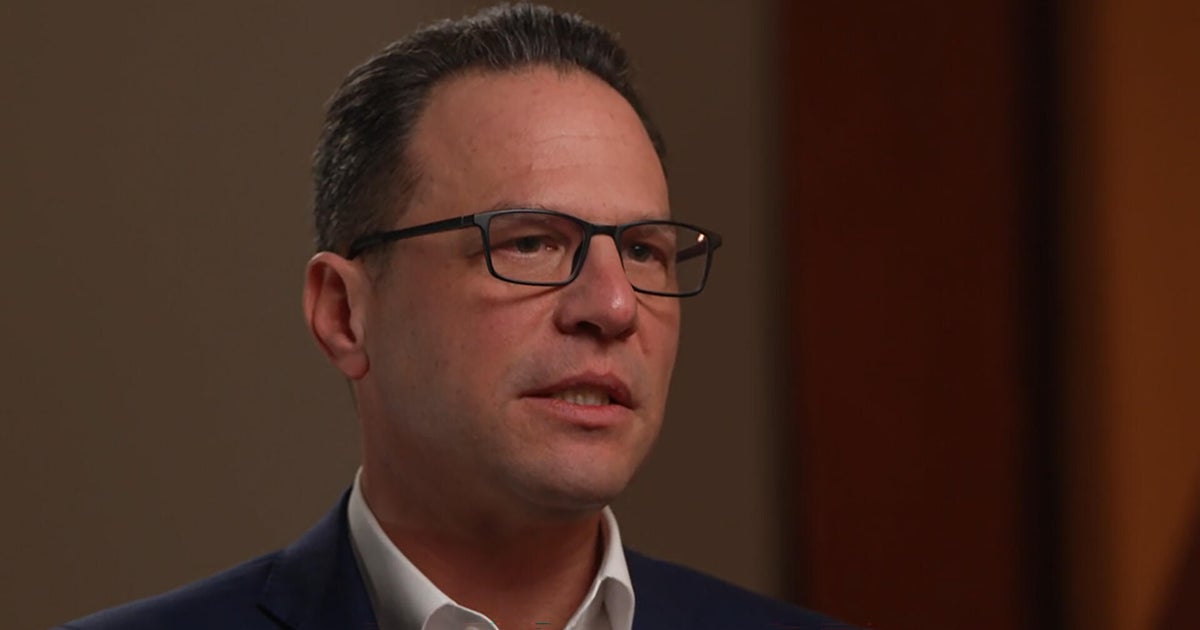Medical Marijuana Bill Now Heading To Governor Wolf's Desk
HARRISBURG, Pa. (CBS/AP) — Pennsylvania is set to become the latest state to legalize medical marijuana as the Legislature sent a bill to the governor on Wednesday, after parents of children suffering from debilitating seizures circulated the Capitol urging lawmakers to act.
The House voted, 149-46, capping several years of door-to-door lobbying by parents and more than a year-and-a-half since the state Senate first approved a medical marijuana bill in 2014. Gov. Tom Wolf, a Democrat, has indicated he will sign it.
Governor Wolf released the following statement on the passage of the bill.
"Today the House passed SB3, sending the medical marijuana legalization bill to my desk. I am proud and excited to sign this bill that will provide long overdue medical relief to patients and families who could benefit from this treatment. I applaud members of both parties in the House and Senate who have come together to help patients who have run out of medical options and want to thank the thousands of advocates who have fought tirelessly for this cause. I have met with patients and families, held roundtables, and urged action on this legislation since taking office, and it is encouraging that the hard work of these families has resulted in historic legislation."
Pennsylvania would become the 24th state to legalize a comprehensive medical marijuana program, according to the National Conference of State Legislatures.
The issue has been driven by parents who believe a marijuana oil extract can help relieve the daily seizures that have left their children in wheelchairs or functioning far below their grade level. Some say they worried that the next seizure will kill their child.
Christine Brann, of Hummelstown in suburban Harrisburg, said that every day without a medical marijuana law in Pennsylvania is a risk for people who believe their suffering child may not survive another day.
"Every day we roll the dice on our child's or our loved one's life," said Brann, whose 5-year-old son, Garrett, is diagnosed with a severe form of epilepsy known as Dravet syndrome.
The bill sets standards for tracking plants, certifying physicians and licensing growers, dispensaries and physicians. Patients could take marijuana in pill, oil, vapor or liquid form but would not be able to legally obtain marijuana to smoke or to grow their own.
The Pennsylvania Medical Society opposed the bill and one opponent, Rep. Matt Baker, R-Tioga, warned that the bill violates federal drug laws and that the state would see a drastic impact on addiction and abuse.
"There's serious consequences associated with this monumental piece of legislation," Baker told colleagues during floor speech before the vote.
In Pennsylvania, the legislation's list of 17 qualifying diagnosed conditions include cancer, epilepsy, autism, Parkinson's disease, post-traumatic stress disorder, sickle cell anemia, multiple sclerosis, AIDS and glaucoma.
Physicians must be registered by the state to certify that a patient has an eligible condition and a patient must get a Department of Health-issued ID card.
The legislation's drafters say they expect it would be two years before regulations are written and retailers are ready to sell to patients. However, a safe harbor provision in the bill would allow parents to avoid the wait by legally buying medical marijuana from another state for their child.
Cara Salemme, whose 9-year-old son Jackson has suffered daily seizures for the past four years, said parents will immediately seek help for their children, if they haven't already.
"There are many people in Pennsylvania who aren't waiting, they're healing," said Salemme, of Spring Grove, near York. "We'll definitely do what we need to do."
Diana Briggs, of Export, near Pittsburgh, said she hopes to help her 15-year-old son, Ryan, who suffered a brain injury at birth and has suffered from daily seizures since that have left him in a wheelchair, unable to talk or walk. Nothing has worked, including pharmaceuticals, stem cell therapy, diet or electrical nerve stimulation therapy, Briggs said.
Ryan's doctors believe medical marijuana could help him, she said.
"If it can alleviate these seizures, I can't imagine what he could accomplish," Briggs said.
(TM and © Copyright 2016 CBS Radio Inc. and its relevant subsidiaries. CBS RADIO and EYE Logo TM and Copyright 2016 CBS Broadcasting Inc. Used under license. All Rights Reserved. This material may not be published, broadcast, rewritten or redistributed. The Associated Press contributed to this report.)







